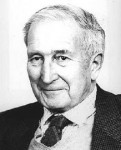The New Theism
The rhetoric of the New Atheism is so extreme that their arguments are often lost in the resultant “trolling” and “twitter wars”. This is a shame: there are many secularists who do not want to eradicate religion, but who nevertheless accept some of the central claims of the new atheists. In particular, they accept a narrative, which goes something like this:
Religion was once the “social glue” that held society together. The gods were a personalisation of human social values, a necessary force for social order. Over time, however, the world was disenchanted. Scientific explanations replaced myths and fables; managerial techniques and bureaucracy removed the need for religious authority. Moreover, just as science has grown in knowledge, and just as technology has become more and more advanced, society is also becoming more enlightened, moving in a definite, desirable direction
Here we want to argue that this story is a modern myth. Admittedly, it is a myth that might have seemed much more plausible fifty years ago. But a lot has happened since to shatter its plausibility. Secularism’s surprise that belief in God lingers on might have been understandable in the 1950s or 60s; it is inexcusable in the early twenty-first century. We also want to challenge an atheist “meme” which labels all arguments for the rationality of Christian belief “apologetics”, as if they were all proposed by evangelists who want to sell Christianity as a product to an educated audience. In fact, the academic revival of Christian theism is due to several revolutions in thought. Atheists who casually dismiss arguments for Christianity as “apologetics” are either in the grip of dogmatism or haven’t heard the news.
1. God and the Physicists
The success of science led many intellectuals to claim that God was an “unnecessary hypothesis”. In the first half of the twentieth century, some empiricists went further and claimed that the very concept of God was meaningless. For something to be meaningful it had to capable of being verified in terms of the five senses. Since God’s existence could not be verified in this way, God (and theology more generally) were designated as nonsense.
But then things changed: it dawned on philosophers that the proposition:
for something to be meaningful it has to be capable of being verified
was not itself capable of being verified. One could not prove this claim through experiments or observations. On its own terms, it had to be rejected. At the same time, physicists and cosmologists appealed to “unobservables” in their most successful hypotheses and explanations. “Unobservables” are objects that are so removed from us in size, distance or time that we will never be able to detect them with the five senses. So, if unobservables were respectable in physics, philosophers and theologians would need to take them more seriously as well.
Furthermore, two scientific findings have provided independent lines of support for belief in God. The most obvious example of this is known as the fine-tuning of the universe. Fine-tuning is something we are familiar with in the case of a radio: you won’t be able to listen to your favourite station unless your radio has been tuned in so that the frequency is just right. In a similar way, scientists have discovered that a whole range of features of the universe are tuned so that they have just the right values for life to exist. For example, if the force of gravity or the nuclear forces within atoms were increased or decreased even slightly, then life as we know it would be impossible. What makes these discoveries so amazing is the extent to which the universe is finely tuned. Take the gravitational constant as an example. How finely tuned does it have to be? To one part in a million (106) perhaps? Or one part in a billion (109)? No. In fact, the required accuracy is 1 part in 1040 (that’s a one with 40 zeros after it!). And remember, that’s just for one feature of the universe! It is not just Christians who find this evidence persuasive. Cosmologist Paul Davies claims that ‘the impression of design is overwhelming’.
Secondly, 1965, two scientists Arno Penzias and Robert Wilson were working on a satellite communications project and were puzzled by a signal that was affecting their equipment. They tried various measures to remove the signal, even speculating that it might be due to pigeon droppings, but to no avail. In fact, it turned out to be persistent radiation coming from all directions in space. Subsequently they received the Nobel prize for having discovered what is known as the background microwave radiation. Their discovery was taken as confirming the big bang theory of the origin of the universe. The radiation they discovered was a remnant of the hot, dense initial state of the universe and has been referred to as the ‘afterglow of creation’. From this time to the present day, it has become scientifically respectable to believe that the universe had a beginning – which is, at the very least, suggestive of a creator.
2. Christianity and History
Historians of science overturned the myth of a “conflict” between Christianity and science. This myth overlooked the importance of Christian theology to the birth of modern science. After the second industrial revolution, it seemed axiomatic that scientific discovery would bring technological progress. However, when the pioneers of science set out to examine nature this was not at all obvious. Knowledge of the natural world was pursued simply because it was considered to be good in itself. This particular pursuit of knowledge makes sense if we are “thinking God’s thoughts after him” by studying his creation. Intellectuals would have been less inclined to study a world produced by the random movement of meaningless atoms in the infinite void.
During the scientific revolution, notions from Christian belief found their way into scientific discourse. Christians believed that God was both rational and sovereign: a rather different world-view from the ancient’s belief that the world sprang out of chaos and was governed by Fortune. A rational, personal God would create an orderly, regular universe. This led to the belief that nature would be governed by laws and that these laws could be described in the language of mathematics. If we are to have knowledge of the natural world, the laws of nature must not be too deep or complex for us to follow.
Christians believed that we were made in God’s image; it followed that were created with the intellectual ability to understand God’s creation. On the other hand, God is free and sovereign. Some Ancient Greeks, like Aristotle, thought that we could discover the principles that governed the world simply through rational reflection. However, Christians believed that God was not obliged to create the world according to the principles that philosophers thought best. The only way to discover God’s plan in creation was to go out and look! This meant an increased focus on observation and experiment.
Of course, if Christian belief led to the prediction that we would discover laws and mechanisms governing the universe, then it is ridiculous to argue that such discoveries explain Christian theism away! If anything, the discovery of deep, mathematical regularities in our universe confirms theism. In fact, science assumes the existence of some “basic stuff” (sub-atomic particles, say, or relativistic quantum fields) governed by very specific laws. Furthermore, science assumes that such a universe can be comprehended by human beings. Science simply cannot explain why an ordered universe exists.
3. The God of the Philosophers
In the late 1960s and 1970s Christian philosophers showed that many of the reasons given for rejecting belief in God weren’t nearly as persuasive as many atheists had assumed. God’s existence could not be proved logically to the satisfaction of atheists; but this did not mean it was irrational to believe in God. We cannot categorically prove that humans have, or do not have, free-will to everyone’s satisfaction; the objectivity of morality is questioned and defended by many. The mere fact of disagreement about a philosophical idea does not make that idea suspect.
 Many of the traditional arguments for God’s existence started to make a comeback. The search for deductive proof took a back seat as philosophers studied the nature of good explanations and inferences. Many explanations could be offered for the existence and order of our universe, moral obligations and human value, consciousness and reason; however, God was the best explanation for them all. At the same time, philosophers like Alvin Plantinga clarified the meaning of terms like “God”, while offering convincing challenges to important atheist arguments (like the logical problem of evil). Work on David Hume demonstrated that he was wrong to dismiss beliefs in the miraculous; work on the incarnation and trinity demonstrated they were logically possible.
Many of the traditional arguments for God’s existence started to make a comeback. The search for deductive proof took a back seat as philosophers studied the nature of good explanations and inferences. Many explanations could be offered for the existence and order of our universe, moral obligations and human value, consciousness and reason; however, God was the best explanation for them all. At the same time, philosophers like Alvin Plantinga clarified the meaning of terms like “God”, while offering convincing challenges to important atheist arguments (like the logical problem of evil). Work on David Hume demonstrated that he was wrong to dismiss beliefs in the miraculous; work on the incarnation and trinity demonstrated they were logically possible.
Some of the finest philosophers of the Twentieth and Twenty-First Century have published in philosophy of religion. A brief sampling of theists who have notable publications in other philosophical fields includes Peter van Inwagen in metaphysics; Paul Moser and William Alston in epistemology; John Finnis and Alisdair McIntyre in ethics; Dean Zimmerman in philosophy of mind and Nicholas Rescher in philosophy of science. Atheist and agnostics of significant stature have also published in philosophy of religion: Michael Tooley, Graham Oppy, Richard Gale, Anthony Kenny and Adolf Grunbaum. Anyone who doubts their merit does not deserve a seat at the grown-ups table.
4. The Quest for Jesus
If the last fifty years have seen renewed reasons for belief in God, backed up in part by scientific discoveries, some of the central claims of Christianity have received support from another surprising source: the field of biblical studies. It may come as a surprise to many readers that in the first half of the twentieth century the dominant view in the field of biblical studies was that the four Gospels found in the New Testament were little more than ancient myths that contained little historical information about Jesus of Nazareth or any of the events they describe. In fact, it was claimed that virtually nothing could be known about the historical character of Jesus, his life, teaching, deeds, death, and certainly not his resurrection. To believe in the Jesus of orthodox Christianity was to believe in a myth that had no basis in historical reality.![]()
Once again, however, the position has changed dramatically. Many scholars began to realise that the attitude adopted towards the Gospels was overly sceptical. By simply studying the Gospels in the same way as other ancient documents and without assuming that they were inspired by God, it became clear that they provided much more reliable historical information than had previously been thought. In the 1970s, a number of scholars approached the Gospels by focussing on the Jewish background to them and the events that were known from other sources to have been taking place around the time of Jesus. When they did this, they found that much of the material in the Gospels made good historical sense and so could not be dismissed easily. At the very least, a rough outline of the life of Jesus, central themes to his teaching, his crucifixion by the Romans and that his disciples claimed to have seen him alive after his death are now all considered to be well-established facts.
A leading scholar in this field of study, Richard Bauckham, has argued at length that the Gospels, far from being late documents that were not based on actual events, are in fact based on the eyewitness testimony of Jesus’ first followers. He shows that older theories, which claimed that the Gospels had been corrupted in a lengthy process of transmission of earlier traditions, are no longer tenable. One of the most prominent contributors to these debates has been NT Wright who has produced several volumes which provide detailed historical arguments for a view of Jesus that is in keeping with orthodox Christianity. This culminated in his book The Resurrection of the Son of God in which he argues that the events following the crucifixion of Jesus are much better explained by the resurrection than any of the other scenarios that have been proposed.
Needless to say, not all scholars working in this area agree with the conclusions reached by Wright, Bauckham and others, just as not all philosophers or scientists believe in God. But the point is that there is a very serious case to be made for an orthodox Christian view of Jesus and the Gospels on historical grounds, just as there is a very serious case to be made for the existence of God.
Conclusion
We’re certainly not claiming that all scholars (or even the majority) in these fields believe in God or are Christians; however, we are claiming that arguments for the rationality of Christian theism are part of the academic mainstream and supported by good evidence. Of course, Christian faith is about much more than weighing up the evidence, but anyone wishing to find the truth about life, the universe and everything ought to acknowledge that Christianity offers a plausible worldview


